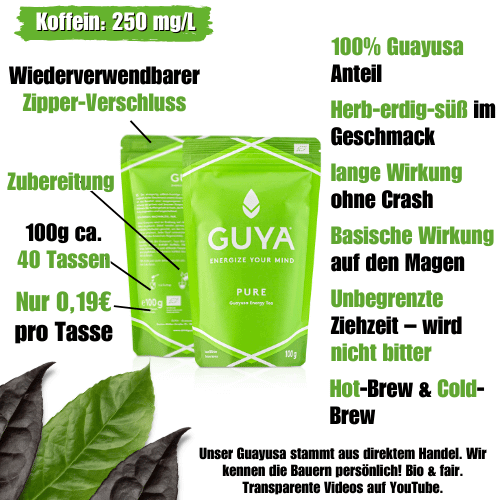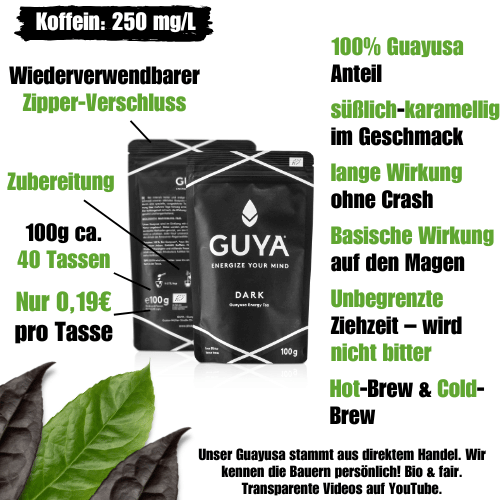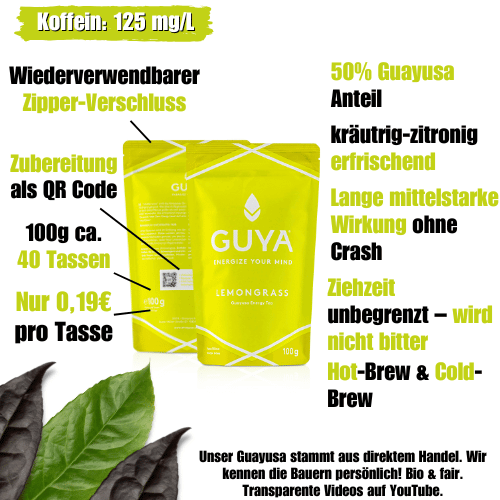Lemon grass origin - where does the delicious herb come from?

Introduction
Lemon grass, known for its fresh fragrance and diverse use in the kitchen and Naturopathic, has its origin in the tropical and subtropical regions of southern and Southeast Asia. The five largest producers worldwide are India, China, Thailand, Indonesia and Sri Lanka. These countries traditionally grow large -scale lemon grass and supply markets worldwide with lemongrass.
However, a special insider tip in lemon grass production is Ecuadorwhere the herb is cultivated in the middle of the Amazon rainforest in a sustainable and fair way. Embedded in biodiversity permacultures, the lemong grass grows here in harmony with nature. This environmentally friendly cultivation method not only preserves the valuable rainforest biodiversity, but also leads to a particularly intense and aromatic lemon grass, which is characterized by its outstanding quality.
In this article we immerse yourself deeper into the origin of lemong grass, compare the large growing areas worldwide and show why sustainable cultivation in Ecuador is a real peculiarity - for the environment, people and of course the taste.
Table of contents
- Introduction - where does the delicious herb come from?
- The largest lemon grass producers worldwide
- A special country of origin: lemon grass made of Ecuador
- Comparison: Traditional cultivation areas vs. Sustainable cultivation in Ecuador
- Conclusion-Why Ecuador as a country of origin shapes the future of lemongrass cultivation
2. The largest lemon grass producers worldwide
The global production of lemongrass primarily focuses on tropical and subtropical regions in which the climate offers ideal growth conditions.
The countries India, China, Thailand, Indonesia and Sri Lanka Dominate the global market through its many years of experience and large production quantities in huge monocultures.

2.1. India-the market leader in lemon grass production
India plays a leading role in lemongrass production. The extension focuses on the southern states such as Kerala, Karnataka and Tamil Nadu, where the tropical climate offers ideal growth conditions.
India's development towards one of the world's largest export nations for essential lemon grass oil, which is mainly used in the cosmetics and food industry, is particularly remarkable.
Small family businesses traditionally cultivate the plants, while large agricultural companies use a lot of pesticides and chemical fertilizers to increase earnings.
2.2. China - traditional cultivation for the global market
China is one of the leading countries in lemongrass cultivation, especially in the southern provinces such as Guangdong and Yunnan.
Lemongrass has long been used as an important plant for traditional Chinese medicine, where it is used to promote digestion and as a natural remedy.
If you want to learn more about the effect of lemongrass, I recommend the extensive article "Lemon grass tea: effect, healing effect, psyche and side effect".
In addition, China supplies the global market with dried lemon grass and essential oils, which are widespread in food, cosmetics and aromatherapy.
2.3. Thailand - culinary traditions and growing areas
In Thailand, lemon grass is more than just an agricultural product - it is an integral part of culture and kitchen. Especially in the regions of Central and North Thailand, the herb grows in large quantities to cover local needs.
The aromatic stems play a key role in Thai cuisine, for example in dishes such as Tom Yum or Currypast.
2.4. Indonesia - an important exporter of lemon grass
Indonesia is one of the important producers of lemon grass and mainly builds it on the island of Java and in parts of Sumatras. Here the farmers benefit from the fertile soils and the warm, humid climate that offer ideal conditions for growth.
Lemongrass is cultivated for both domestic needs and the international market.
Initiatives to promote sustainable cultivation methods are becoming increasingly important in order to protect the environment and at the same time secure export, but the largest cultivation takes place in huge monoculture areas.
2.5. Sri Lanka - cultivation for local needs
In Sri Lanka, lemongrass is mainly cultivated by small farmers who combine traditional cultivation methods with modern sustainability practices.
The country uses its tropical climate zones to produce lemon grass in high quality, which is used especially in local cuisine and naturopathy.
In addition to fresh lemon grass, the production of essential lemon grass oil is becoming increasingly important. Demand increases both in Germany and in the export market, since the oil as a natural fragrance and therapeutic means is becoming increasingly popular.
3. A special country of origin-lemon grass made of Ecuador

Ecuador stands out as an unusual location for lemongrass cultivation. Located in the heart of the Amazon rainforest, the country offers ideal climatic conditions with high humidity and nutrient-rich soils that give the lemong grass a particularly intensive aroma.
Unlike in many other countries, when growing from our lemon grass, I pay attention to a holistic approach in biodiversity Permacultures. This cultivation method combines the protection of the rainforest biodiversity with ecological principles that receive the soil and the entire ecosystem in the long term. It also protects and strengthens the culture of the Kichwa Indigenen Ecuadorsthat have been pursuing this type of cultivation for thousands of years.
It is special that we are at GUYA Production in Ecuador not only sustainable, but also fair design. Small farmers and indigenous Communities benefit from fair working conditions and are not only integrated into the process, but also lead 100% the Value creation himself.
This not only strengthens the local economy, but also protects the rainforest from further deforestation. The result is a high -quality and particularly aromatic lemon grass, which stands out from other cultivation areas due to its purity and intensive fragrance notes.
Here Go to our lemon grass tea in the 100g pack.
3.1. Amazon rainforest ideal as origin for lemon grass
The origin "Amazonas rainforest" in Ecuador offers a unique microclimate that makes lemon grass thrive particularly well. The constant moisture, fertile soils and all year round mild temperatures create perfect growth conditions.
In contrast to large -scale monocultures, as predominantly prevail in the other countries mentioned, lemon grass is cultivated here in a natural environment, always between other plants such as Guayusa, hibiscus, Ginger, Coffee (cherry)the particularly strong Vanilla odorata and more.
This type of cultivation not only contributes to the health of the plants, but also promotes a harmonious balance in the ecosystem. At GUYA We use neither pesticides nor fertilizers that cannot be made from the ecosystem (e.g. from other plants).
3.2. Sustainability: Lemongrass origin Ecuador
The cultivation of lemongrass in permacultures is a showcase project for sustainable agriculture and thus makes Ecuador a very special country of origin for lemongrass.
Permaculture is based on the principle of using natural cycles and keeping floors fruitful in the long term. In Ecuador, lemon grass grows together with other plants, in addition to the already mentioned also bananas, Yuka, pineapple, guave and many other medicinal plants and beneficial plants. This variety protects the floors from erosion and improves the water absorption, which is also important so that the water cycle of the Amazon does not get out of balance. At the same time, permaculture offers a healthy living environment for insects, birds and other animals that contribute to the biodiversity of the rainforest.
3.3. Fair trade and biodiversity in focus
A central aspect of lemongrass production in Ecuador is the fair trade. Small farmers and indigenous communities receive fair prices for their harvest, which improves their quality of life sustainably.
In addition, our project partners are actively committed to protecting the rainforest biodiversity. Instead of large -scale clearing as it occurs in conventional cultivation methods, the natural ecosystem is preserved and strengthened. The purchase of lemong grass from GUYA So not only supports fair trade, but also makes a valuable contribution to environmental protection.
Therefore, if you really want to buy sustainable lemon grass holistically, you should make sure that it is not only an official "organic product" with seal when growing and originating. It is much more important transparency of Manufacturer To the whole Supplier. At GUYA I guarantee my customers exactly this authentic and honest YouTube-short documentaries and vlogging contributionsThe one real insight delivery.
3.4. Lemon grass origin - which makes Ecuador so unique
The sustainable cultivation process in the permacultures of Ecuador leads to a lemon grass of outstanding quality. The plants form a particularly large number of essential oils due to the nutrient -rich soils and the warm, warm climate, which leads to a more intense taste and fragrance.
Compared to lemong grass from other regions, the Ecuadorian lemon grass is characterized by a finer lemon note and a long -lasting aroma. This special quality makes it an estimated product in both the kitchen and in aromatherapy.
4. Comparison: Traditional cultivation areas vs. Sustainable cultivation in Ecuador
The origin and cultivation of lemon grass in traditional areas such as India, China or Thailand differ fundamentally from sustainable cultivation in Ecuador. While the classic growing areas often rely on large -scale monocultures that aim at maximum earnings increase, we pursue an ecological and holistic approach in Ecuador.
The following comparison shows the most important differences and advantages of the Ecuadorian method as a country of origin for your perfect Lemon grass tea.

4.1. Environmental friendliness and resource conservation
In traditional growing areas, chemical fertilizers and pesticides are often used, which damage the soil and biodiversity in the long term. In addition, large -scale monocultures lead to the exhaustion of natural resources and to deforest valuable forests.
In contrast, Ecuador relies on the extension in Permacultures. Lemongrass and other plants grow here in a natural symbiosis that protects the soil, improves water absorption and creates habitat for animals. This environmentally friendly system prevents erosion and contributes to the regeneration of the ecosystems.
You can find more information in my articles about Chakra cultivation in Ecuador and mine Comparison between sustainable agriculture and the official organic farming.
4.2. Taste and quality in direct comparison
The extension in permacultures under natural conditions gives the lemon grass made of Ecuador an outstanding quality. The plants ripen more slowly, absorb more nutrients and thereby develop a particularly intense aroma with fresh, lemon notes.
In comparison, lemon grass from conventional cultivation, which is designed for earnings maximization, can contain fewer essential oils and can be milder. Especially in the Aromatherapy And in the upper cuisine, the difference in quality and taste is significantly valued.
But also for that Effect as a tea, are Antioxidants, oils and fabrics like Apigenin, Quercetin and Citral extremely important.
4.3. The influence on local communities and markets
Traditional cultivation areas are often characterized by large agricultural groups, in which the small farmers can only make low profits. In Ecuador, on the other hand, the focus is on people. Sustainable lemon grass cultivation, just like with all of our others Products in Shop, offers small farmers fair payment for their goods and long -term perspectives.
At the same time, this type of cultivation strengthens the local economy, through the simultaneous cultivation of many plants and promotes social projects that improve the education and health of the communities. These fair trade practices not only benefit the producers, but also contribute to a more conscious and responsible global supply chain.
5. Conclusion-Why Ecuador as a country of origin shapes the future of lemongrass cultivation
Lemongrass cultivation in Ecuador exemplifies sustainable and future-oriented agriculture. While traditional cultivation methods often go at the expense of the environment and local communities in many countries, Ecuador shows that there is another way. The combination of ecological permaculture, the preservation of biodiversity and fair working conditions not only offers ecological added value, but also guarantees a particularly high -quality and aromatic product.
The natural conditions of the Amazon rainforest, paired with sustainable growing methods, make Ecuadorian lemongrass unique. Be intense aroma and the high quality Remove it from conventional products. At the same time, fair trade ensures that small farmers are rewarded fairly and can benefit from their work in the long term. I use it GUYA-Products Not just an important sign for Environmental awareness, but hopefully shape the Future one responsible agriculture.
So who is worth it Quality, sustainability and places fair trade, with the lemon grass made of Ecuador finds a product that convinces in every respect - taste, ecological and social.













